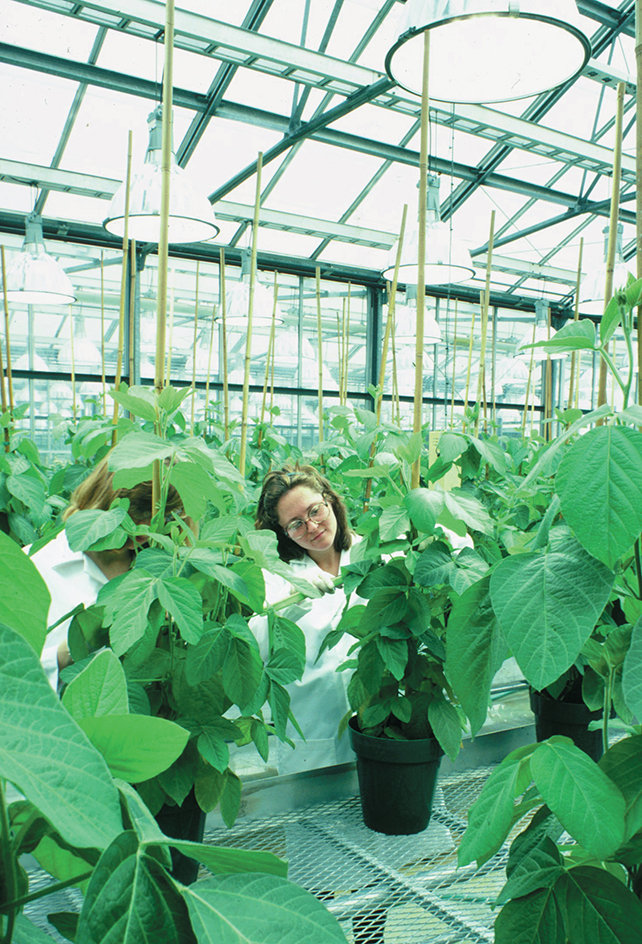Agronomy, << uh GRON uh mee, >> is a branch of agricultural science that deals with the study of crops and the soils in which they grow. Agronomists work to develop methods that will improve the use of the soil and increase the production of food and fiber crops. They conduct research in crop rotation, irrigation and drainage, plant breeding, molecular biology, soil classification, soil fertility, weed control, and other areas.

Plant breeding, a branch of agronomy, has increased crop yields and has improved the nutritional value of several crops, including corn, rice, soybeans, and wheat. It also has led to the development of new types of plants. For example, a hybrid grain called triticale was produced by crossbreeding rye and wheat. Triticale contains more usable protein than does either rye or wheat. See Triticale .
Agronomists study ways to make soils more productive. They classify soils and test them for substances vital for plant growth.
In addition, agronomists develop methods to preserve the soil and to decrease the effects of erosion by wind and water. For example, a technique called reduced tillage may be used to prevent soil erosion and conserve rainfall. Researchers in agronomy also seek ways to use the soil more effectively in solving other problems. Such problems include the disposal of wastes; water pollution; and the unintended build-up in the soil of chemicals that are used to kill insects and weeds.
Most agronomists are researchers, consultants, or teachers. Many work for agricultural experiment stations, federal or state government agencies, industrial firms, universities, or international organizations.
See also Agricultural experiment station ; Cropping system ; Soil .
